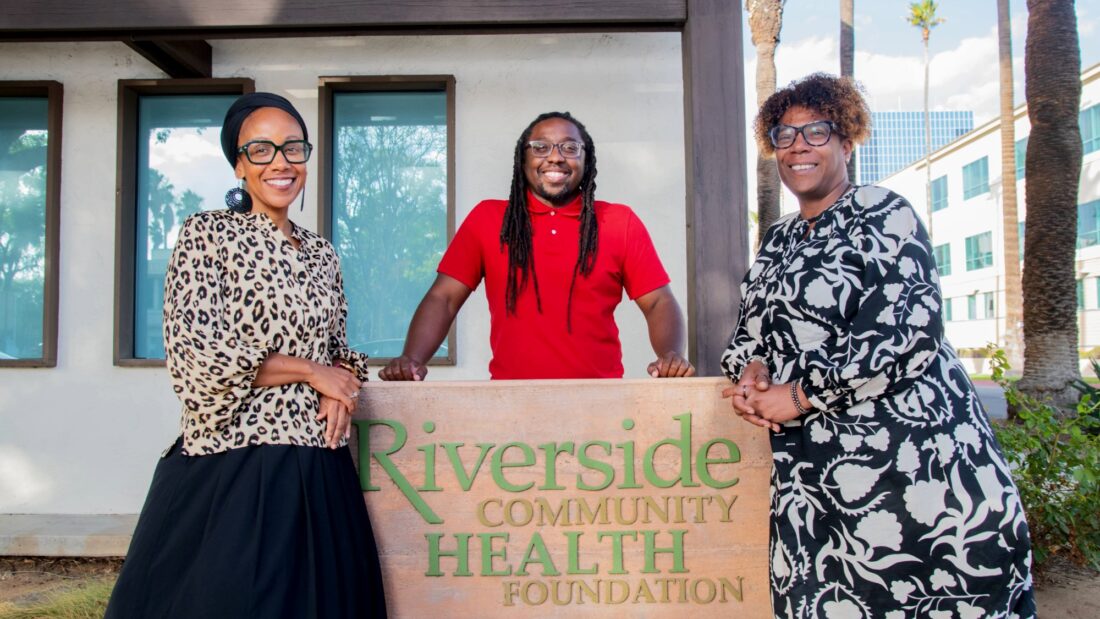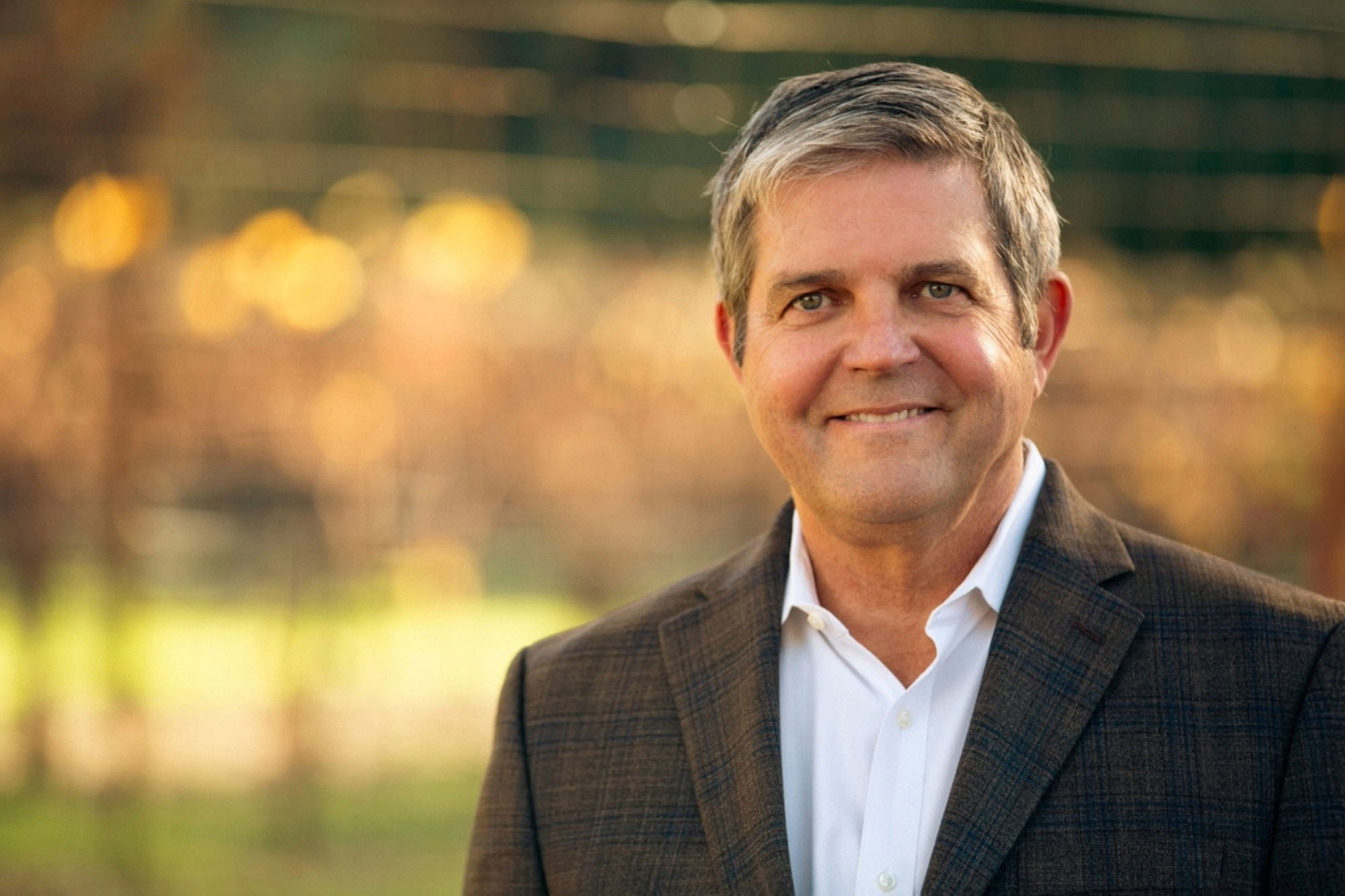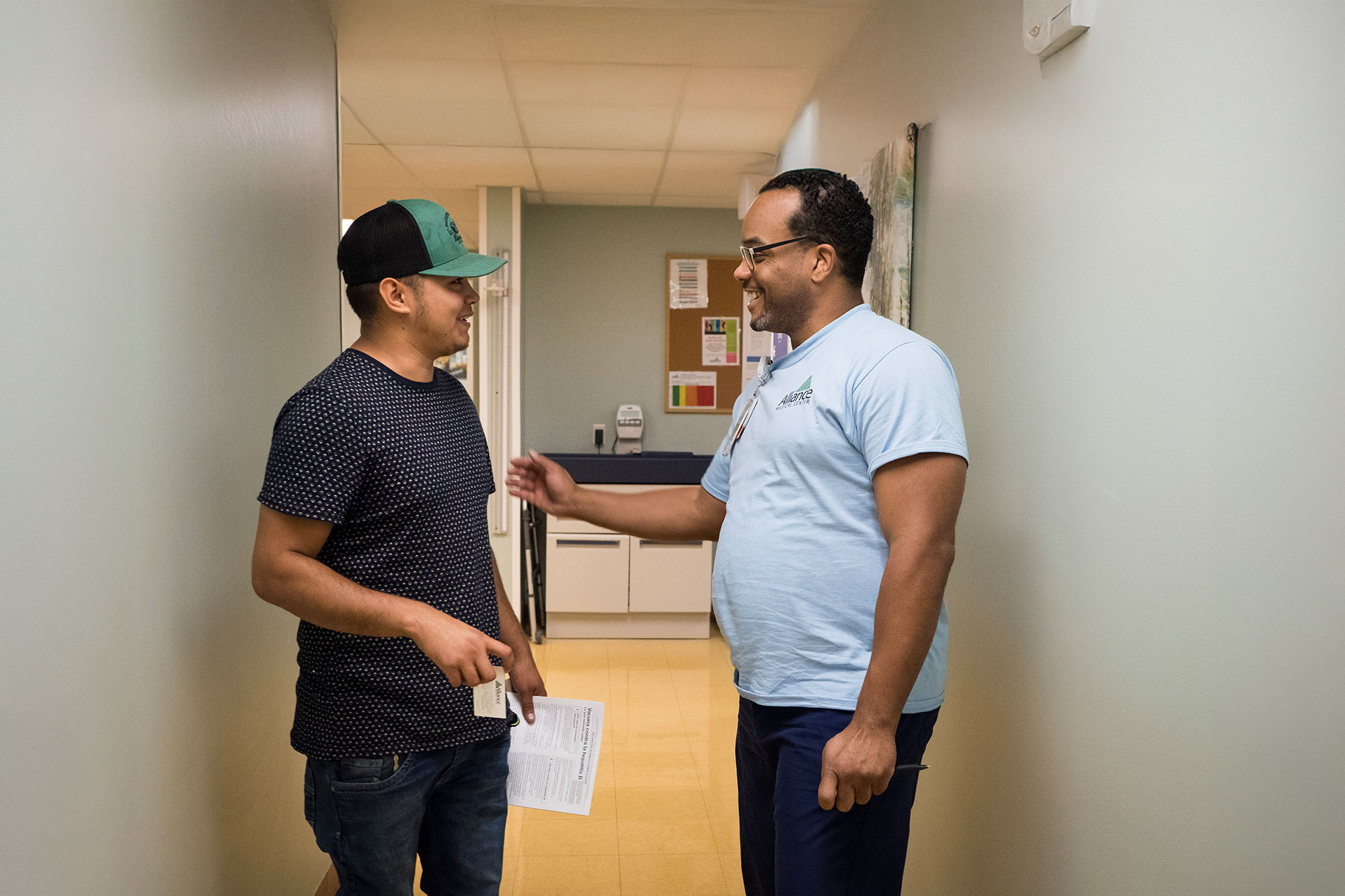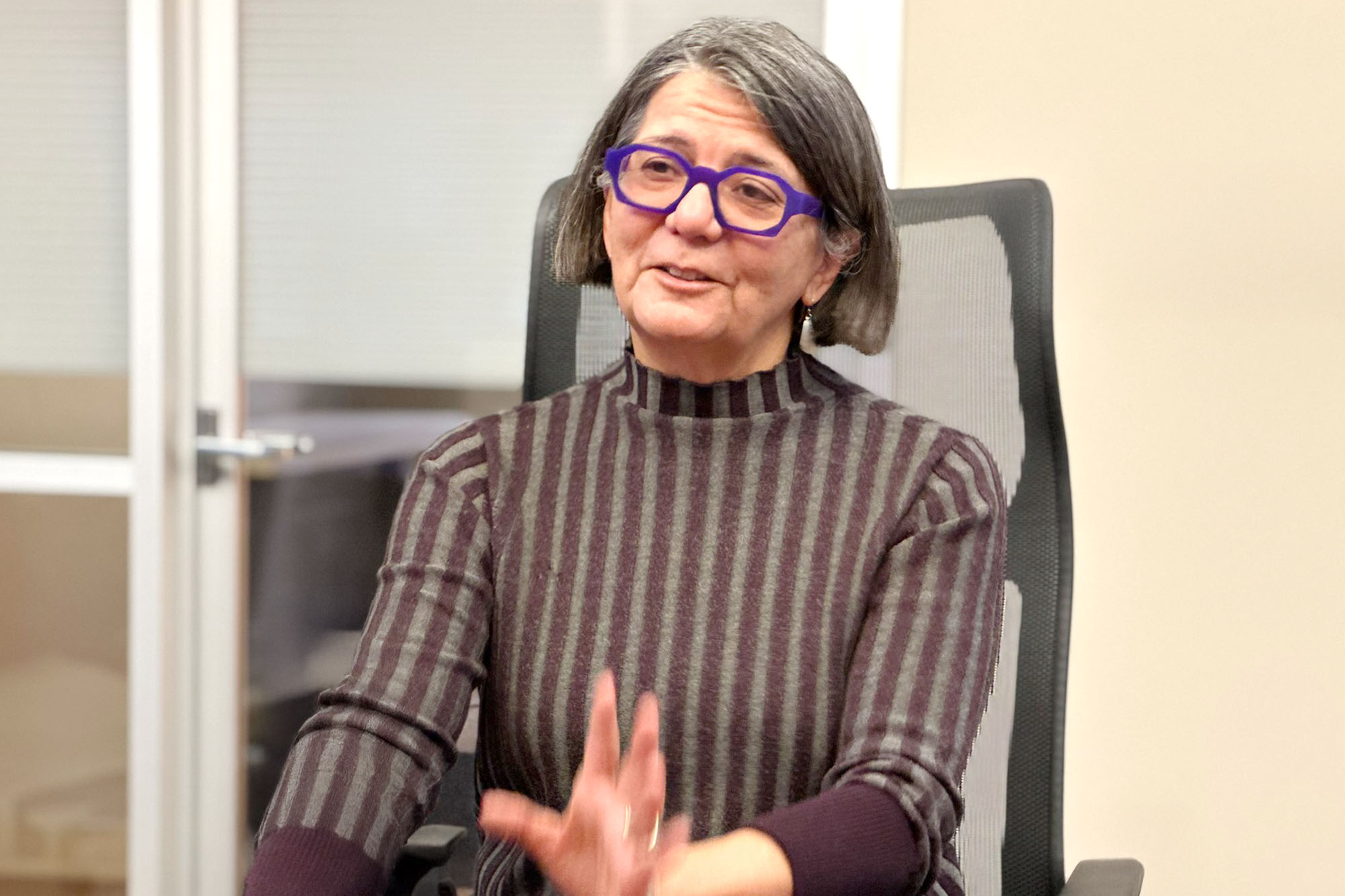
Black Californians face entrenched barriers to the responsive, respectful care they deserve. They experience more preventable hospitalizations, have higher readmission rates than other racial and ethnic groups, and face greater risks of maternal death and premature birth. Research shows that these disparities, rooted in historical racism, are embedded in health policies and practices that persist despite the Black community’s high rate of health insurance coverage.
But when Black families can access high-quality care that is free from bias and addresses their specific health needs, it benefits them while helping Californians across the board. Transforming our one-size-fits-all model of health care into a system that can meet all Californians’ unique needs will give us all a clearer path to health and well-being.
That’s why CHCF launched Pulse of Change, an initiative to reimagine how we deliver respectful, responsive, high-quality care by working in partnership with Black Californians.
In 2024, when CHCF announced that it would fund a range of efforts to strengthen health care systems and remove barriers to Black Californians getting needed care, the response from community clinics, hospitals, and technology start-ups statewide was strong. Pulse of Change grants — which include project funding, access to a network of like-minded leaders and organizations, communications support, and fundraising technical assistance — were awarded to eight organizations.
Grantees are addressing an array of topics, target populations, and organizational structures, including a San Diego community health center developing a coordinated care program that screens Black patients for colorectal cancer and a Bay Area clinic that connects chronically ill Black patients to health navigators and social services. The common thread is that all are focused on fostering effective care for Black Californians.
“Each organization embodies the core value of this work — an unwavering commitment to building trusting relationships that center and honor Black patients’ health care priorities,” said Katherine Haynes, a senior program officer in the CHCF Improving Access team. “CHCF is honored to support their work and to learn from the promising delivery system strategies, as well as strategies that might not be worth pursuing.”
Here are short articles about three of the Pulse of Change grantee organizations:
Addressing Maternal Health Disparities
Joy Cooper, MD, a Black OB-GYN, has experienced health care racism firsthand. As a provider for a large health care system, Cooper could see that her Black patients were severely underserved and hungry for care from someone who could relate to their racial and cultural identities. This was evident in her conversations with patients with whom she had built meaningful relationships through telehealth visits. “I remember patients saying to me that they felt so supported despite never meeting in person,” Cooper said.
These interactions inspired Cooper to lean into telemedicine’s potential to address systemic inequities and connect Black patients to providers who share their backgrounds and lived experiences. She created Culture Care, a Berkeley-based start-up that connects Black women with Black health care providers in California, New York, and Pennsylvania. By offering affordable virtual care, Culture Care seeks to ensure Black patients can access Black clinicians, regardless of geographic or coverage barriers.
At a time when Black women experience the highest rates of maternal morbidity and mortality, Culture Care created the “Black Women’s Avenger Project.” It supports two cohorts of pregnant Black women and birthing people with prenatal and postpartum care up to one year after their deliveries. Culture Care uses all-Black interdisciplinary teams consisting of an OB-GYN, a mental health therapist, a lactation expert, and a pediatrician. Culture Care does not compete with patients’ primary prenatal care providers but instead ensures that their health care experiences are culturally concordant. The care is provided exclusively through telehealth visits that cost an average of $50.
“We’re trying to bridge and shorten the gap between Black women and the services they need,” Cooper said. “Black women need care, and I’m focused on the fastest and simplest way to get there.”
Improving Outcomes by Building Trust
Statewide, Black Californians face disproportionate risk for heart failure and other chronic disease. Within the Sutter Health system, which operates across northern California, Black patients are 17% more likely than all other racial and ethnic groups to die of heart failure within a year of care due to inadequate pharmaceutical treatment. That led medical sociologist Rashon Lane, PhD, to launch the Heart Project. This Sutter initiative focuses on building trust with Black patients being treated for heart failure by addressing inequities that result from racism in health care.
The project’s goals include understanding how Black patients navigate the Sutter Health system, discerning social factors that support patients’ ability to manage their health, and learning how Sutter Health can partner with Black patients to establish better health equity indicators. Through extensive patient interviews, Lane creates space to listen to the experiences and reflections of Black Sutter heart failure patients. “We’re seeing that Black patients are experiencing heart failure younger than their White counterparts,” Lane shares. “We’re also hearing lots of folks who are only able to focus on surviving, which doesn’t allow them to identify particular health goals.”
Sutter Health will enroll patients with heart failure in a virtual pharmacy ambulatory care clinic to provide optimal treatment and provide patients with food insecurity challenges access to a digital nutrition program and free food vouchers. Sutter Health will collaborate with Black patients to develop health equity quality indicators and collect data on patients’ encounters with anti-Black racism in the health care system.
Lane is hopeful that this work will result in Sutter Health’s Black patients:
- Feeling heard in sharing their experiences of anti-Black racism and harm in the health care system
- Experiencing shifts in care within the Sutter system that eliminate harm and medical trauma
- Receiving medications at optimal doses
- Having fewer heart failure-related inpatient admissions within 30 days of hospital discharge
- Accessing foods that support heart failure treatment
- Accepting Sutter as a trustworthy organization that will provide equitable care.
Creating Space for Connection
Black Californians are committed to taking preventive actions to combat chronic illness, according to recent research. But inadequate access to primary care keeps many individuals from finding resources to achieve those goals.
In Southern California, Riverside Community Health Foundation, a nonprofit charity, aims to bridge those gaps and improve community health through disease prevention, fitness, and health education. The foundation’s Rooted in Our Health project is focused on reducing the prevalence of high blood pressure among Black adults in Riverside County through early screening and intervention that includes community and faith-based partnerships.
The foundation will provide free mobile blood pressure screenings, reduce transportation needs, and ensure that Black patients feel heard, respected, and empowered. Patients with high blood pressure will be referred to appropriate providers with support from community health workers trained to take blood pressure readings and promote patient adherence to follow-up visits, timely care, and patient education.
In workshops, participants learn strategies to reduce chronic hypertension while building community with others who have similar health and life experiences. “It’s really been enlightening,” one participant said. “I have not been eating right, but I’m getting back. I know it’s very necessary that we eat fruits and vegetables, and I know we need to exercise, and participating in this program has helped me to get back on track.”
Participants say that learning as a group has been motivating and resulted in observable improvements in their health. Hearing that other people are going through similar health challenges helps individuals feel less alone. Learning that peers have been successful in improving their health and lowering their blood pressure inspires them to do the same. They also value individual attention from workshop facilitators — for many a welcome alternative to the rushed care they receive at the doctor’s office. “At this workshop, they took the time to explain things,” said another participant. “There’s a lot of things I learned that I didn’t know by taking this workshop, and I’ve noticed that my blood pressure has been regulating.”
This is the first of three planned articles that will report on how Pulse of Change grantee organizations are working to help providers deliver culturally responsive health care to Black patients.
Authors & Contributors

dana e. fitchett
dana e. fitchett is a writer and multidisciplinary creative entrepreneur with a passion for work grounded in equity and liberation. She provides writing services to a broad range of clients with PJS Consultants, as well as independent authors, consultants, and artists.

John Valenzuela
Independent photographer
John Valenzuela, a seasoned freelance photographer and former staff photographer for Southern California News Group, captures stories through his lens.





